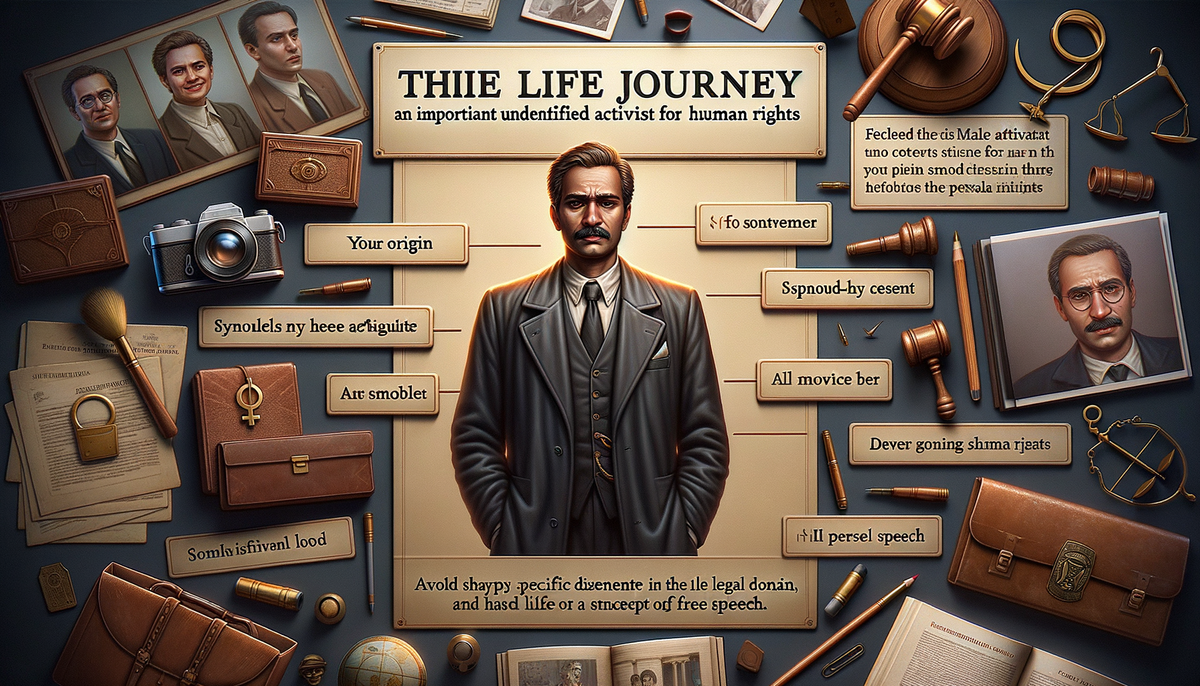Exploring the Challenges and Legal Struggles of Mahmoud Khalil
Explore the journey of Mahmoud Khalil, a pivotal figure in activism for Palestinian rights. Delve into his background, legal battles, and the implications for free speech.

Exploring the Challenges and Legal Struggles of Mahmoud Khalil
Mahmoud Khalil has become a household name in the realm of activism, especially concerning Palestinian rights. Born in 1995 in a Syrian refugee camp, Khalil’s journey is emblematic of the ongoing struggle faced by many in the Palestinian diaspora. As a graduate of Columbia University's School of International and Public Affairs (SIPA), he has used his platform to advocate fiercely for Palestinian rights, often at great personal cost. This post delves into the riveting and complex narrative surrounding Khalil, exploring his background, activism, and the legal battles that are reshaping discussions about international students and free speech in the U.S.
Background and Biography
Mahmoud Khalil was born to Palestinian parents in a refugee enclave in Damascus, Syria. His family belongs to displaced Palestinians whose roots trace back to Tiberias, Palestine. Despite the hardships faced in the refugee camp in southern Damascus, Khalil has risen to become a significant voice for Palestinian activism [1], [2], [3].
Activism at Columbia University
At Columbia University, Khalil became a pivotal figure within the student body during the heightened tensions following the Israel-Gaza conflict. As a lead negotiator for Columbia University Apartheid Divest (CUAD), his leadership was instrumental in channeling the demands of the student protests to the university administration, which called for divestment from companies profiting from Israeli military operations [3].
He navigated the intricate dynamics of student activism with a focus on empathy and fairness, ensuring that all voices were heard while strategically advancing the BDS movement’s goals [2]. His role extended beyond typical student activism, securing him a legacy as a mentor and leader despite the risks to his immigration status.
Legal Challenges and Immigration Status
In March 2025, Mahmoud Khalil faced arrest by the U.S. Immigration and Customs Enforcement (ICE) over claims tied to his activism. The Department of Homeland Security accused him of associations with a designated terrorist organization, Hamas, though investigations revealed his activities remained non-violent and lawful [1]. This case has underscored the delicate balance between free speech and national security concerns [1].
Khalil’s legal battle has drawn significant attention, with many seeing him as a beacon for free speech rights under threat. His legal team argued that the charges were a suppression tactic against his vocal stance on Palestinian rights, a viewpoint resonant with various supporters globally [3].
Public Perception and Impact
Supporters celebrate Mahmoud Khalil as a courageous activist championing social justice, while detractors caution against potential extremism. Nevertheless, his case has sparked a widespread discourse on the freedom and limitations of student activism in the U.S., specifically for international students [2].
Conclusion and Call to Action
Mahmoud Khalil's story captivates due to his resilience and commitment to justice, raising critical questions about activism, freedom, and authority. As the case continues, its outcome holds potential implications for activists worldwide. For professionals engaged in similar fields, Khalil’s experience underscores the vital need for preparedness in advocacy - understanding both the socio-political context and legal terrain is crucial.
At Newsomix, we strive to illuminate complex narratives like those of Mahmoud Khalil, strengthening your understanding of global issues and their interconnectedness with freedom of expression. We encourage our readers to delve deeper into these proceedings, consider the implications on policy and activism, and support transparency in dialogue and action.
Explore the Mahmoud Khalil narratives and understand the shifting paradigms of activism and policy. Stay informed, stay engaged.




